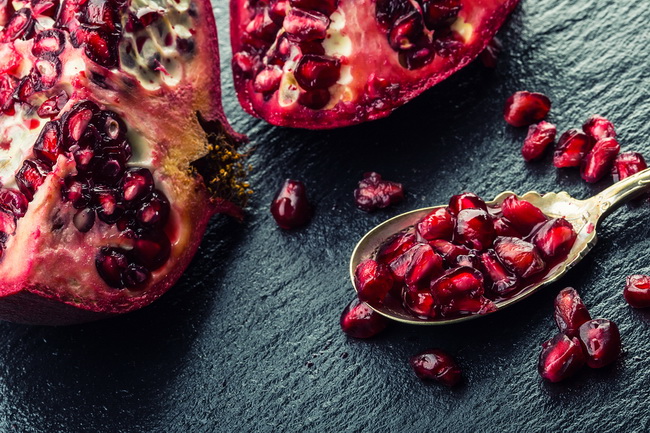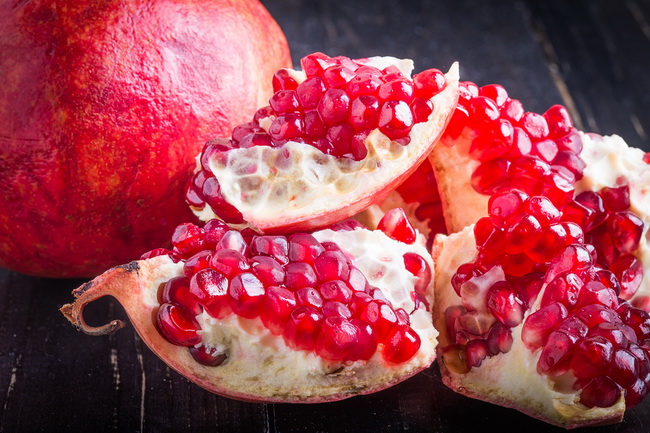- Make It Yourself Lavender Heart-Shaped Bath Bombs!
- 20 Things You Never Knew About “Down There”
- 12 Best Foods For Those Suffering From Arthritis Pain
- 12 Personal Hygiene Mistakes Almost Everyone Makes (Mom Never Told You About #4!)
- 15 Medicinal Plants And Herbs From The Cherokee People
- 12 Mind-Blowing Benefits Of Drinking Coconut Water During Pregnancy
- 12 Outstanding Winter Foods That Won’t Fatten You Up Like A Christmas Turkey
The Magic Fruit That Cleans Out Your Arteries

Photo credit: bigstock.com
Everyone is always looking for the one magic food, that one nutritional silver bullet that will guarantee them good health. This has the led to the “superfood” trend that has swept the health and nutrition fields. Some of these foods are legit. Others are more dubious. With so much information out there—much of it contradictory—how can you separate the wheat from the chaff? Aren’t there some ancient, accepted truths regarding what is healthy and what is not?
What if we told you there was a super-fruit that has stood the test of time? One that stands up to scientific scrutiny and has been proven to protect cardiovascular health while still tasting great? Intrigued? Read on and learn more.
Pomegranates are a fruit that come from a small, shrub-like tree which is native to the regions that make up present-day Iran. From there, it spread outward in all directions, becoming a staple in Middle Eastern, Mediterranean, Persian, and Indian cuisines, and became associated with fertility and religious concepts from places as far apart as China and Greece. Pomegranates have a rich and intense flavor, but what makes them so distinct from other fruits is how you eat them: You actually eat the seeds, instead of the fruit itself! The “meat” of the pomegranate is a white, inedible substance with a sponge-like constancy. Inside there are pockets filled with seeds surround by a juice-filled sac called an “aril.” A typical pomegranate contains about 500 to 600 arils, each of which is filled with vitamins and antioxidants that offer a multitude of health benefits.
Perhaps one of the most outstanding qualities of pomegranates is the potential they have to improve your cardiovascular health. Recent studies have shown that pomegranate juice can prevent damage to blood vessels and the hardening of the arteries due to the accumulation of cholesterol.
Arterial hardening, a condition otherwise known as atherosclerosis, is caused by the buildup of plaque in the arteries, which consists of harmful low density lipoprotein (LDL) cholesterol. When this occurs, it can cause high blood pressure and a significantly increased chance of a stroke or a heart attack.
Continue to Page 2

Photo credit: bigstock.com
A study published in the journal Atherosclerosis found that pomegranate extract may prevent and even reverse the risk of cardiovascular disease. Researchers found that the extract produced a marked decline in the presence of occlusive plaque in the arteries of laboratory mice. This conforms with the findings of many other studies on pomegranate juice/extract that show its effectiveness in reducing the risk of heart disease and cholesterol-related conditions. Another study out of Israel, for example, showed a reduction of carotid artery congestion of nearly 30 percent among test subjects who drank pomegranate juice every day.
But what is the reason for all this? For starters, pomegranates have powerful anti-inflammatory properties. Inflammation, a condition that is all too common as a result of our highly unbalanced diets, can contribute to an increased risk of heart disease. Any food, drink, or ingredient that fights inflammation is something most of us could use more of, and pomegranate juice is an excellent choice for this purpose.
Pomegranates also offer “natural angiotensin converting enzyme inhibiting properties” and increase the levels of nitric oxide in our bloodstreams. Both of these play a role in reducing blood pressure. The higher blood pressure is, the greater the risk of stroke, so pomegranates are definitely something people with hypertension or prehypertension might want to consider eating more of.
Finally, the powerful antioxidant qualities of pomegranates appear to be a factor as well. Oxidation actually makes LDL cholesterol even more harmful than it ordinarily would be. Consuming pomegranate juice can help reduce the amount of oxidative stress within the body, including in the bloodstream where arterial plaque can form. A study performed on mice and published in the American Journal of Clinical Nutrition found that pomegranate juice was able to lower the amount of oxidative stress, and consequently the number of atherosclerotic lesions, by 44 percent!
READ ALSO: The Best Superfood Berries For Your Health Infographic
Pomegranates are great, and you’re probably not eating enough of them. There are many fruits and vegetables with antioxidant and anti-inflammatory qualities, but pomegranates are definitely among the best, and are proven to have powerful heart-healthy qualities. Pick one up today. After the laborious process of taking it apart, you’ll see what all the fuss is about.
References:
































